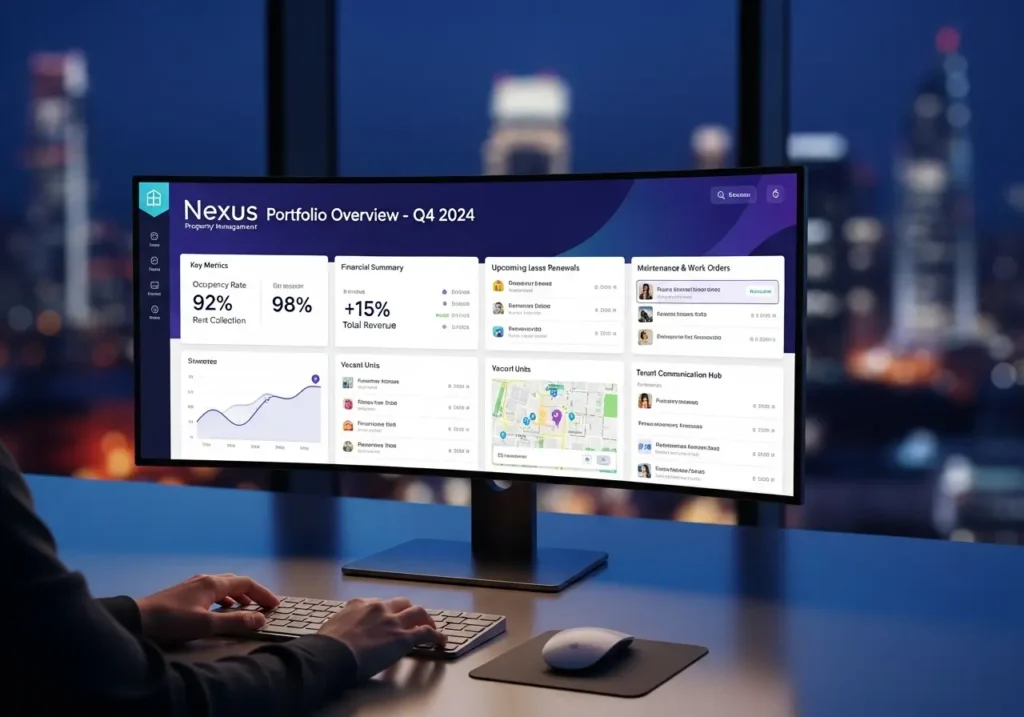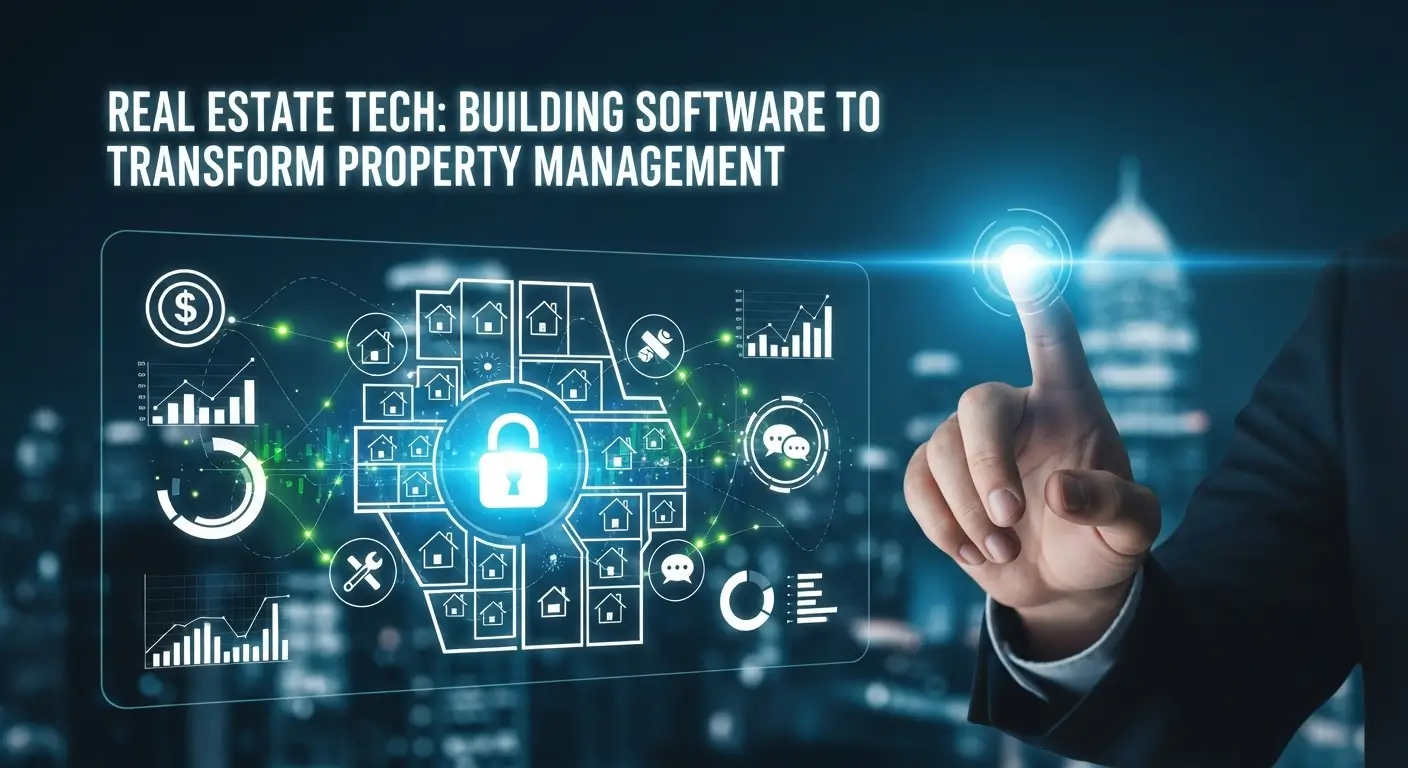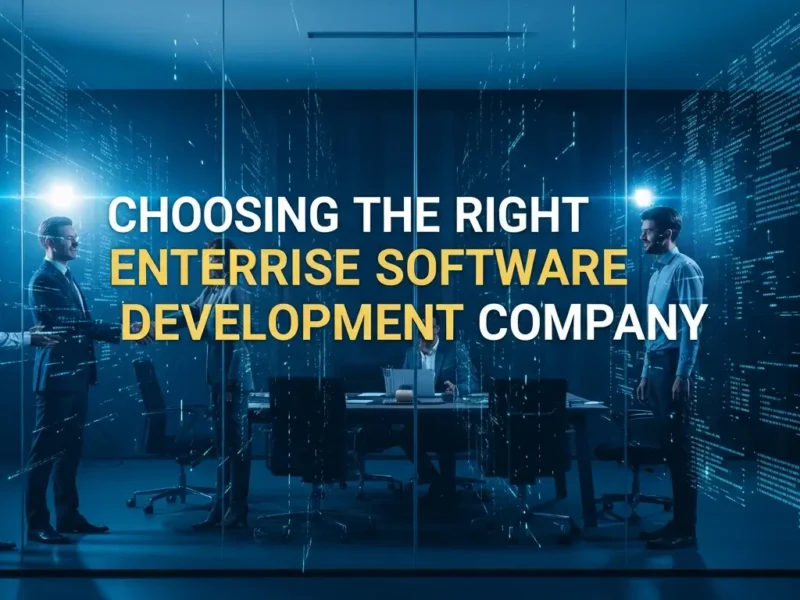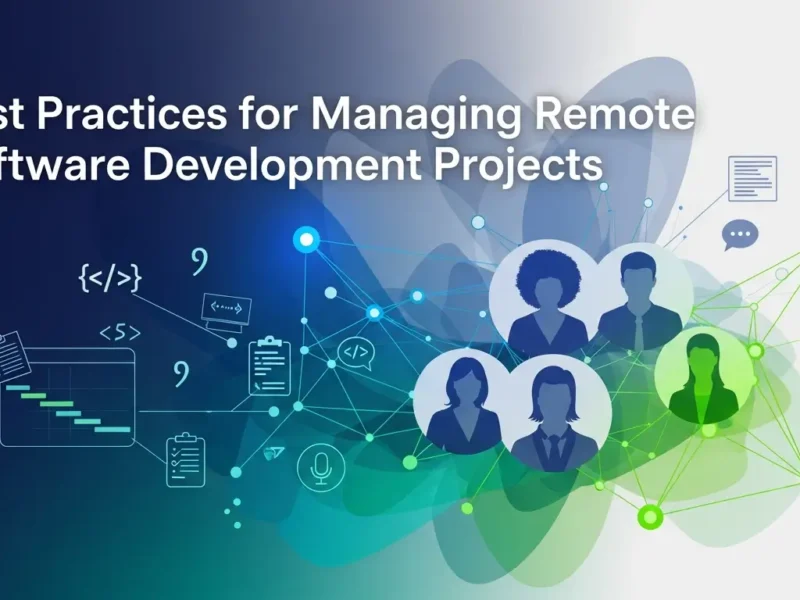The real estate industry, once a bastion of tradition, is undergoing a seismic shift thanks to technological innovation. From AI-powered analytics to virtual reality tours, “real estate tech” – or PropTech – is redefining how properties are bought, sold, and, most crucially, managed. For property managers, this technological revolution isn’t just about efficiency; it’s about unlocking unprecedented value, enhancing tenant experiences, and future-proofing their operations in an increasingly competitive landscape. This article will delve into the core of building software to transform property management, exploring the challenges, solutions, and immense opportunities that lie ahead.
The Evolving Landscape of Property Management
Property management, at its heart, involves a myriad of tasks: tenant acquisition and retention, lease administration, maintenance coordination, financial reporting, and compliance, to name a few. Traditionally, many of these processes were manual, paper-intensive, and prone to human error. The consequences ranged from delayed maintenance requests and frustrated tenants to missed revenue opportunities and legal liabilities.
However, modern property managers face heightened expectations. Tenants, accustomed to seamless digital experiences in other aspects of their lives, demand convenience and transparency. Property owners seek greater insights into their investments and optimized returns. And the market itself requires agility and data-driven decision-making. This evolving landscape necessitates a radical transformation, and the answer lies in purpose-built software.
Identifying the Pain Points: Where Software Can Shine
Before embarking on software development, a clear understanding of the industry’s most pressing pain points is crucial. By addressing these challenges head-on, new PropTech solutions can deliver tangible value.
- Inefficient Communication: A common source of friction is fragmented communication between tenants, property managers, and maintenance teams. Phone calls, emails, and even physical notices can lead to misunderstandings and delays.
- Manual Task Overload: Repetitive administrative tasks, such as processing rent payments, scheduling inspections, and managing lease renewals, consume valuable time that could be better spent on strategic initiatives.
- Lack of Data Insights: Without centralized data, property managers struggle to identify trends, forecast vacancies, optimize pricing, or understand the true cost of operations.
- Slow Maintenance & Repairs: Delayed responses to maintenance requests not only lead to tenant dissatisfaction but can also result in greater property damage and increased costs.
- Compliance Complexity: Navigating the labyrinth of local, state, and federal housing regulations, fair housing laws, and safety standards is a constant challenge.
- Limited Tenant Experience: In an increasingly competitive rental market, a superior tenant experience is a key differentiator. This includes easy access to information, convenient payment options, and proactive communication.
These pain points represent prime opportunities for innovative software solutions to step in and revolutionize operations. When seeking such solutions, engaging custom software development services can ensure the final product perfectly aligns with specific operational needs and challenges.
Key Features of Transformative Property Management Software
Building effective property management software requires a strategic approach, focusing on features that deliver genuine improvements across the board. Here are some cornerstone functionalities:
- Centralized Tenant Portals:
- Online Rent Payments: Secure and convenient options for tenants to pay rent, view payment history, and set up auto-pay.
- Maintenance Request Management: A streamlined system for submitting, tracking, and communicating about maintenance issues. Tenants can upload photos/videos, and managers can assign tasks and provide updates.
- Communication Hub: Secure messaging for tenants to interact directly with property managers, reducing reliance on email and phone calls.
- Document Access: Easy access to lease agreements, community rules, and other important documents.
- Amenity Booking: For multi-unit properties, a system for booking shared amenities like clubhouses, gyms, or guest suites.
A robust tenant portal significantly enhances the resident experience and reduces administrative burden on managers.
- Automated Lease & Rental Management:
- Digital Lease Signing: E-signature capabilities for legally binding agreements, accelerating the leasing process.
- Lease Tracking & Renewals: Automated reminders for lease expirations and renewal options, minimizing vacancies.
- Automated Rent Escalations: Tools to automatically apply rent increases as per lease terms.
- Vacancy Management: Tracking vacant units, marketing integration, and applicant management.
- Comprehensive Financial Management:
- Rent & Fee Tracking: Detailed ledgers for all incoming and outgoing funds.
- Expense Management: Categorization and tracking of property-related expenses, from repairs to utilities.
- Automated Accounting Integration: Seamless integration with popular accounting software (e.g., QuickBooks, Xero) for streamlined bookkeeping.
- Financial Reporting: Customizable reports on income, expenses, profit/loss, and cash flow for individual properties or portfolios.
- Online Owner Portals: Secure access for property owners to view financial statements, reports, and property performance metrics.
- Proactive Maintenance & Vendor Management:
- Work Order Generation & Assignment: From tenant requests or scheduled inspections, easily create and assign work orders to internal staff or external vendors.
- Vendor Management Database: Store vendor details, contracts, insurance information, and performance ratings.
- Preventative Maintenance Scheduling: Automate routine maintenance tasks for HVAC, plumbing, and other systems to extend asset lifespan and prevent costly breakdowns.
- Asset Tracking: Inventory and track property assets, their condition, and maintenance history.
- Marketing & Leasing Tools:
- Listing Syndication: Automatically publish vacant units to popular rental platforms (Zillow, Apartments.com, etc.).
- CRM for Leads: Manage prospective tenants, track inquiries, and schedule showings.
- Online Application & Screening: Digital application forms, background checks, credit checks, and eviction history reports.
- Virtual Tours & Floor Plans: Integration of 3D tours, interactive floor plans, and high-quality photography to attract prospective tenants.
Here’s an example of how a modern property management dashboard might look, offering a centralized view of key metrics:

Emerging Technologies Shaping PropTech
Beyond the foundational features, several cutting-edge technologies are poised to further transform property management:
- Artificial Intelligence (AI) & Machine Learning (ML): AI can predict tenant churn, optimize rental pricing based on market dynamics, automate responses to common inquiries, and even analyze maintenance request patterns to predict potential issues before they arise.
- Internet of Things (IoT): Smart devices (thermostats, leak detectors, smart locks) can provide real-time data on property conditions, enable remote access control, and optimize energy consumption. This leads to predictive maintenance and significant cost savings.
- Blockchain: While still nascent, blockchain could offer secure, transparent, and immutable records for leases, property titles, and financial transactions, reducing fraud and streamlining processes.
- Virtual Reality (VR) & Augmented Reality (AR): VR tours allow prospective tenants to experience properties remotely, while AR can assist maintenance technicians with on-site repairs by overlaying digital information onto the real world.
Building Your Real Estate Tech Solution: Key Considerations
Developing a successful property management software requires more than just a feature list.
- User-Centric Design: The software must be intuitive and easy to use for all stakeholders – property managers, tenants, and owners. A clunky interface will hinder adoption.
- Scalability: The solution should be able to grow with a property management company’s portfolio, from a handful of units to thousands.
- Security & Compliance: Protecting sensitive tenant and financial data is paramount. Robust security measures and adherence to data privacy regulations (e.g., GDPR, CCPA) are non-negotiable.
- Integrations: No software is an island. Seamless integration with existing accounting systems, listing platforms, smart home devices, and communication tools is vital. Open APIs are critical here.
- Mobile Accessibility: Property managers are often on the go. A powerful mobile app for both managers and tenants is essential for real-time access and management.
- Data Analytics & Reporting: The ability to generate insightful reports and visualize key performance indicators (KPIs) empowers better decision-making.
The Benefits: Why Invest in PropTech Software?
The advantages of implementing advanced property management software are multifaceted and far-reaching:
- Increased Efficiency & Productivity: Automating manual tasks frees up staff to focus on higher-value activities and strategic initiatives.
- Enhanced Tenant Satisfaction: Streamlined communication, easy online payments, and prompt maintenance responses lead to happier, longer-term tenants.
- Reduced Vacancy Rates: Optimized marketing, faster leasing processes, and improved tenant retention directly impact occupancy.
- Cost Savings: From reduced administrative overhead to preventative maintenance that avoids costly emergency repairs, software delivers significant cost efficiencies.
- Improved Financial Performance: Better expense tracking, optimized pricing, and comprehensive reporting lead to enhanced profitability for property owners.
- Better Data-Driven Decisions: Access to real-time data and analytics empowers property managers to make informed choices about everything from rental rates to capital improvements.
- Competitive Advantage: Property management companies leveraging cutting-edge tech stand out in the market, attracting both quality tenants and property owners.
The Future is Now: Transforming Property Management
Real estate tech is not just a passing trend; it’s the future of property management. By strategically building and adopting software solutions, companies can overcome traditional challenges, unlock new efficiencies, and deliver unparalleled value to their tenants and property owners. For those looking to build truly impactful solutions, specialized real estate software development services are essential to navigate the unique demands of this dynamic industry. The investment in robust, user-friendly, and intelligent property management software is an investment in the long-term success and sustainability of any real estate portfolio.



